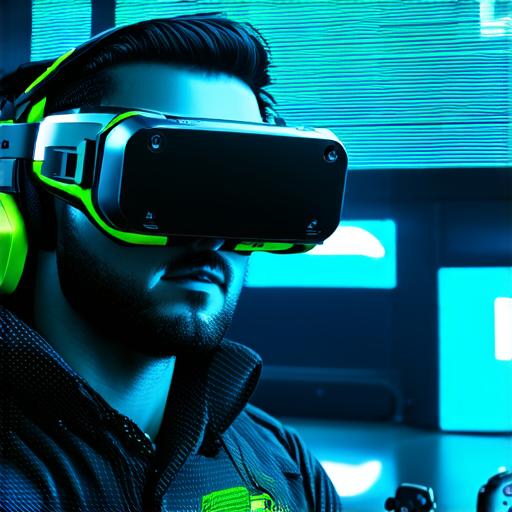The immersive nature of 3D and 4D games has a profound impact on players. These games stimulate the senses, creating an emotional connection that traditional 2D games often lack. This emotional engagement can lead to increased player satisfaction, fostering a sense of accomplishment and investment in the game world.
The Role of Storytelling
In 3D and 4D games, storytelling takes on a new dimension. With the ability to create complex, dynamic environments, developers can craft narratives that unfold organically, responding to player actions in real-time. This interactive storytelling can lead to more engaging, memorable experiences for players.
The Realm of Virtual Reality
Virtual reality (VR) is a natural extension of 3D gaming, offering an even greater sense of immersion. By donning a VR headset, players can step into the game world entirely, interacting with it in ways that were previously impossible. This level of immersion has the potential to revolutionize gaming, making it a more powerful tool for education, therapy, and entertainment.
The Horizon of Augmented Reality

Augmented reality (AR) blends digital elements with the real world, offering a unique gaming experience. AR games can be played on smartphones or tablets, overlaying virtual objects onto the physical environment. This fusion of reality and fantasy opens up new possibilities for gameplay, making gaming more accessible and interactive than ever before.
The Dawn of Holographic Gaming
Holographic gaming is the next frontier in 3D and 4D gaming. By projecting virtual objects into the physical space, holographic games offer an even greater sense of immersion. This technology has the potential to revolutionize gaming, making it more interactive and engaging than ever before.
The Future of AI-driven Narratives
Artificial Intelligence (AI) is poised to play a significant role in the future of 3D and 4D gaming. With AI-driven narratives, games can adapt to player actions, creating unique, personalized experiences. This level of interactivity has the potential to make gaming more engaging and immersive than ever before.
The Embrace of Brain-Computer Interfaces
Brain-computer interfaces (BCIs) allow players to control games using their thoughts. This technology has the potential to revolutionize gaming, making it more accessible and intuitive for all players. As BCIs become more advanced, they could transform gaming into a truly mind-blowing experience.
In Summary
The world of 3D and 4D gaming is an exciting one, filled with endless possibilities. From virtual reality to brain-computer interfaces, the future of this realm is bright, promising a new era of immersive, interactive experiences for players worldwide. For 3D game developers, the challenge is immense, but the rewards are immeasurable – the opportunity to create truly unforgettable gaming experiences that push the boundaries of what’s possible.
